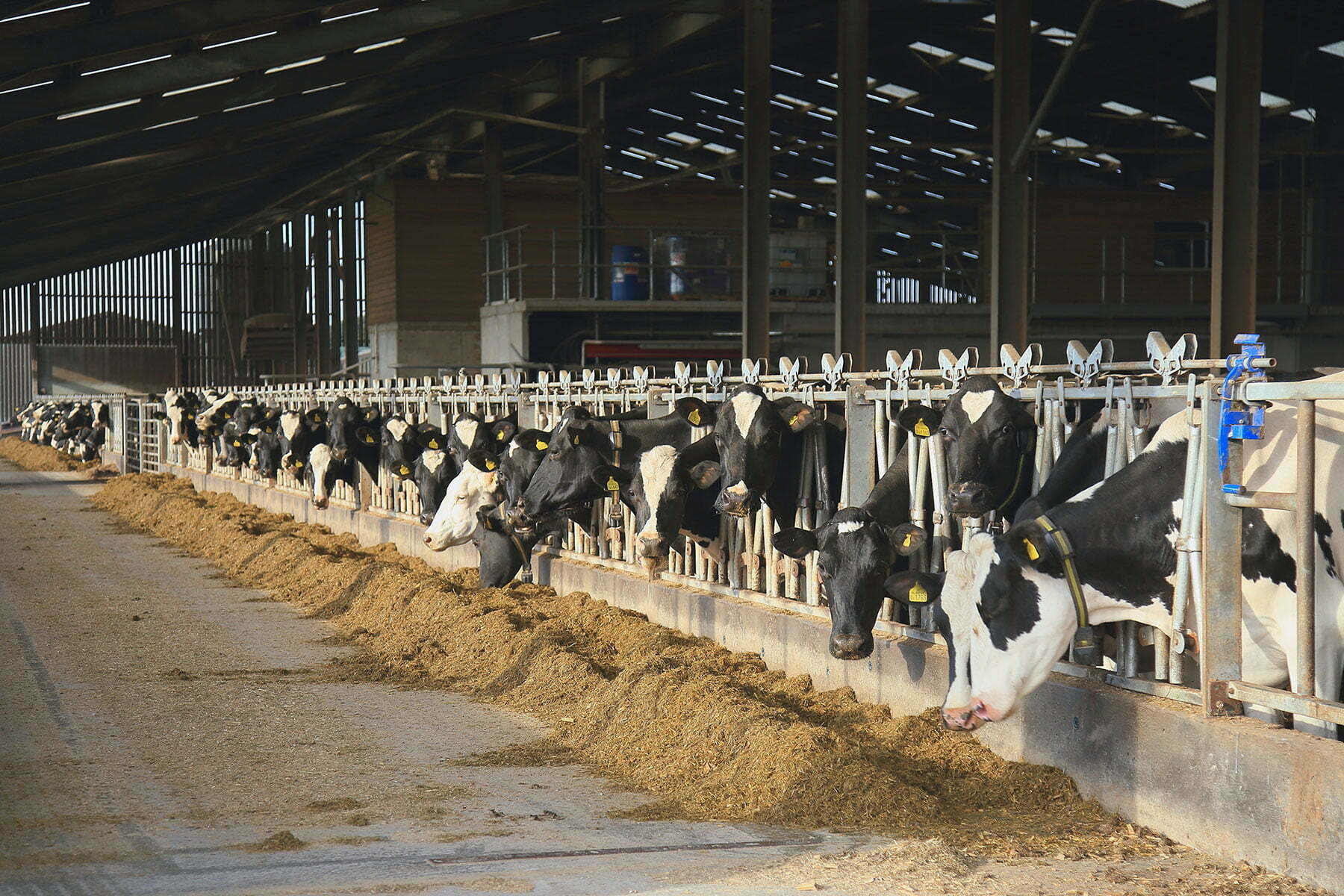Email or call us 01621 773883
Email or call us 01621 773883
Posted on October 19, 2022 and written by Dengie

Following one of the driest summers since 1976 and, potentially, one of the warmest on record, silage and forage stocks are a consideration for many farmers in the UK.
One of the great challenges this year is the variation between the regions of the UK. There are farms that produced lower volumes of silage for various reasons; there are farms that are already feeding silage due to lower grass growth during the summer. Some silage is wet, but a great deal is very high dry matter. This will create challenges for farmers when budgeting for stocks during the winter, and what that winter ration will look like this year.
Interestingly, both wet and dry silages can cause acidosis in the dairy cow for different reasons. Dry silages don’t tend to mix well in the diet feeder – this could lead to sorting of the ration down the feed barrier. Every mouthful the cow eats should be the same, but if the cow can separate the blend, rolled barley, and other “goodies”, she will. This can lead to an overload of starch and a rise in the acidic loading of the rumen. This will affect rumen efficiency and rumen health leading to other issues such as poor fertility. An effective option for dealing with this is to add water to the ration.
However, wet silage and acidic silage pose their own problems. To get the required dry matter intake the cow must consume much more silage – but there is a limit. These silages need to be balanced with a drier forage such as dehydrated lucerne. Rumiplus from Dengie is a high-fibre feed with good quality protein for cows. Not only will it increase the dry matter of the ration, but the short-chopped fibres increase the frequency of chewing, producing more saliva and bicarbonate. This bicarbonate acts as a natural rumen buffer, reducing the risk of acidosis. Reducing acidosis will lead to optimum fibre digestion, improving margins through improved efficiency, with healthier and more fertile animals.
There are always options to stretch out what is available. Options include brewers’ grains, sugar beet pulp etc. but these feeds are scarce and more expensive than they once were. Therefore, it is best to replace forage with other forms of forage. Straw is always popular with farmers – less so with nutritionists. Straw is a very cheap source of fibre but a very expensive source of digestible protein. Also, due to the lack of protein, the ration will need balancing further with other sources such as soya or rapeseed meal. Dehydrated lucerne is a good alternative feed for ruminants, this winter. It has digestible fibre, and levels of energy and protein that will not “dilute” the diet, like straw would.
For further information on Rumiplus click here or alternatively contact us on 07802 829525.